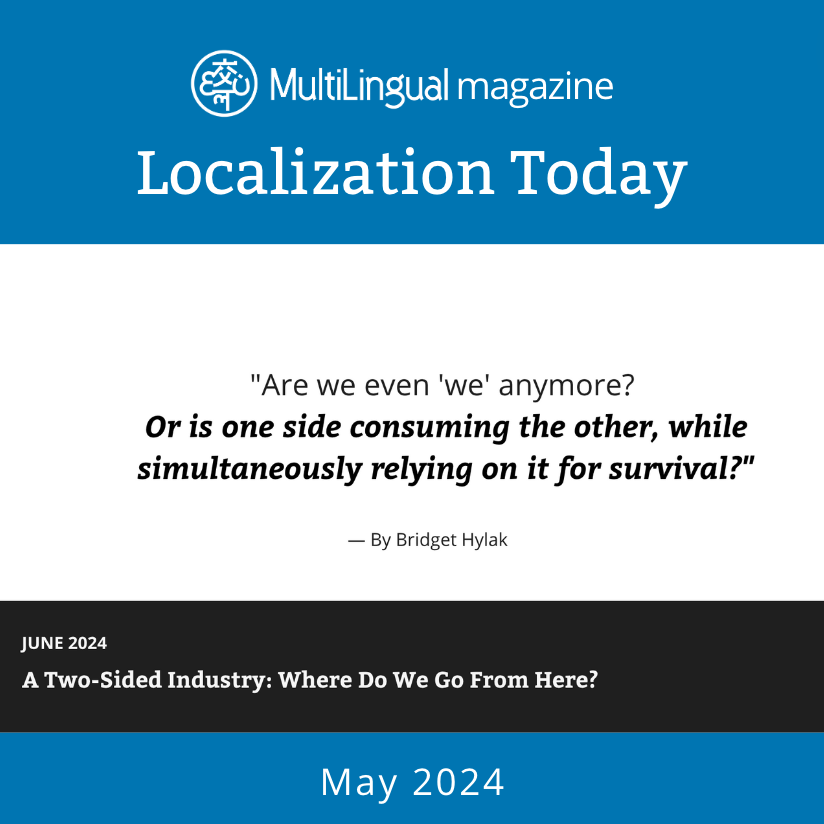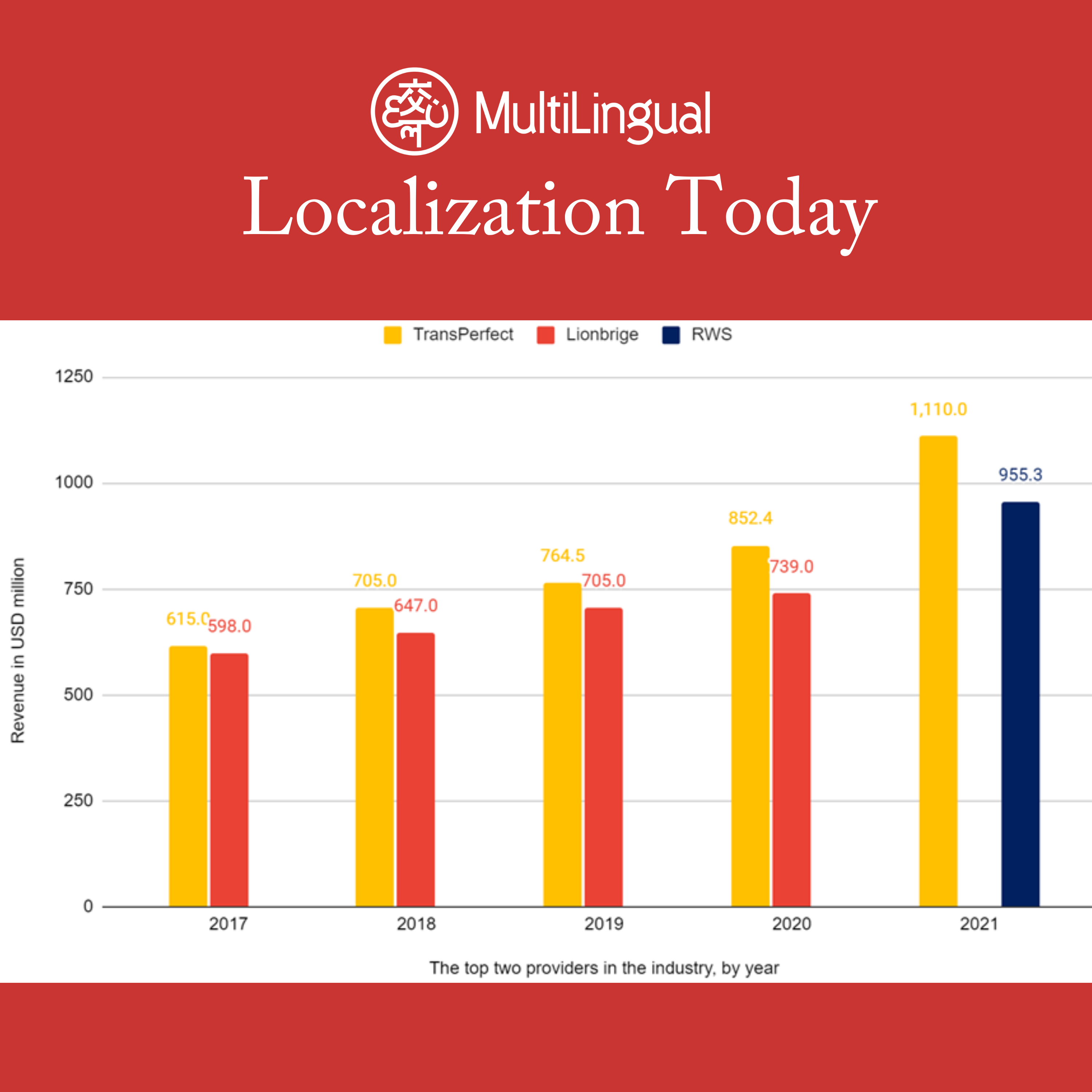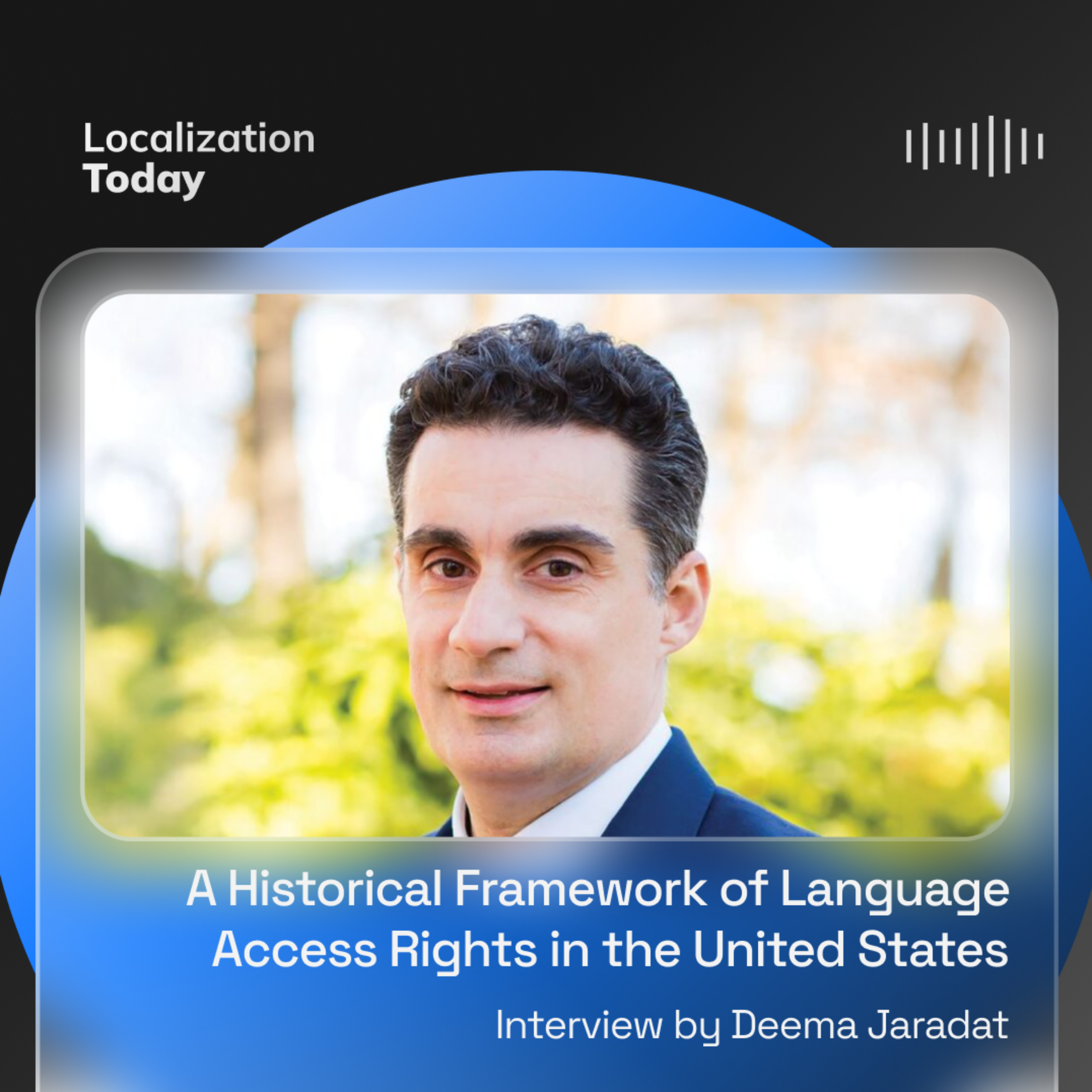Episode Transcript
[00:00:06] Speaker A: This is localization Today, a podcast from multilingual media covering the most relevant daily news in the language industry.
[00:00:15] Speaker B: The essential role of specialized translator at.
[00:00:18] Speaker C: The AI and life sciences nexus by Luciana Ramos in healthcare and medical research.
[00:00:26] Speaker B: Accurate translation plays a pivotal role in.
[00:00:28] Speaker C: Disseminating knowledge, ensuring patient safety, and facilitating global collaboration.
[00:00:35] Speaker B: Specialized translators serve as the linchpin in.
[00:00:38] Speaker C: Bridging communication gaps, offering expertise that goes beyond linguistic proficiency to encompass a deep understanding of medical and scientific concepts, compliance with regulations, and contextual knowledge. As artificial intelligence, AI, and machine translation technologies continue to advance, the role of.
[00:01:00] Speaker B: Human translators remains indispensable. While AI can analyze vast amounts of data and generate translations with impressive speed.
[00:01:09] Speaker C: It lacks the nuanced understanding and contextual.
[00:01:12] Speaker B: Awareness that human translators provide. By means of a specialized mixture of.
[00:01:17] Speaker C: Linguistic, social, and medical knowledge, AI systems may struggle to grasp these nuances, particularly.
[00:01:24] Speaker B: In handling technical terminology prevalent in the life sciences. Moreover, the ethical considerations inherent in translation.
[00:01:33] Speaker C: Such as ensuring inclusivity, gender equality, and adherence to cultural norms, require human intervention and oversight.
[00:01:41] Speaker B: The symbiotic relationship between AI driven solutions and human expertise is essential in navigating the complexities of medical and scientific content.
[00:01:51] Speaker C: And in improving the output of localization in these fields.
[00:01:55] Speaker B: This collaborative approach not only enhances the.
[00:01:58] Speaker C: Accuracy and relevance of translations, but also.
[00:02:01] Speaker B: Ensures they meet the highest standards of.
[00:02:03] Speaker C: Precision, cultural sensitivity, and regulatory compliance, all.
[00:02:08] Speaker B: While extending the reach of life saving information and devices to the most vulnerable and underserved populations.
[00:02:15] Speaker C: Regulatory compliance the integration of AI technologies.
[00:02:20] Speaker B: In medical devices and pharmaceuticals has led to a surge in demand for specialized translators with multifaceted expertise. These translators are required to possess in depth knowledge of not only medical content.
[00:02:33] Speaker C: And AI principles, but also regulatory frameworks and cultural nuances across different markets. For instance, familiarity with the regulatory requirements.
[00:02:43] Speaker B: Outlined by the US Food and Drug Administration is indispensable for ensuring accurate translation.
[00:02:50] Speaker C: Of premarket submission documents, thereby guaranteeing regulatory.
[00:02:55] Speaker B: Compliance and global accessibility of AI driven medical devices and pharmaceutical products in that country.
[00:03:02] Speaker C: Through steps such as cognitive debriefing and.
[00:03:04] Speaker B: Feedback from actual device testing by language.
[00:03:07] Speaker C: Professionals, translators validate the accuracy and usability of user manuals and instructional materials, enhancing.
[00:03:16] Speaker B: The safe deployment of medical devices by.
[00:03:18] Speaker C: Healthcare professionals and patients alike. Similarly, within the pharmaceutical industry, precise and.
[00:03:25] Speaker B: Compliant localization of drug labels and packaging information is paramount to mitigate medication errors.
[00:03:31] Speaker C: And uphold patient safety.
[00:03:34] Speaker B: Here, specialized translation professionals help ensure that translations adhere to regulatory standards and effectively.
[00:03:41] Speaker C: Convey critical information to users. Ethical considerations the United Nations Educational, Scientific.
[00:03:50] Speaker B: And Cultural Organization UNESCOS recommendation on the.
[00:03:54] Speaker C: Ethics of artificial intelligence underscores the importance.
[00:03:57] Speaker B: Of transparency, fairness, and human oversight in AI driven processes, including translation and localization.
Specialized translators uphold these principles, ensuring that translations are ethically sound and promote inclusiveness and accessibility.
[00:04:16] Speaker C: Moreover, translators can help mitigate bias in.
[00:04:19] Speaker B: AI generated translations, particularly in sensitive areas such as healthcare, where inaccurate translations can have serious consequences.
[00:04:29] Speaker C: By adhering to ethical guidelines and promoting.
[00:04:32] Speaker B: Diversity and inclusiveness, specialized translators contribute to the responsible development and deployment of AI technologies in translation.
[00:04:41] Speaker C: In addition to UNESCOS efforts, international organizations such as the World Health Organization play.
[00:04:50] Speaker B: Key roles in shaping ethical standards for AI driven translation in the life sciences. The WHO emphasizes the importance of equity and access in healthcare translation, advocating for culturally and linguistically appropriate communication to ensure equitable healthcare outcomes.
[00:05:08] Speaker C: In this regard, the synergy between language.
[00:05:11] Speaker B: Experts and technology is crucial to enhance.
[00:05:14] Speaker C: Coverage in terms of geography and language combinations. Accuracy and relevance.
[00:05:20] Speaker B: Localization professionals can help develop customized AI models specifically trained for biomedical translation tasks. These models can be trained on large.
[00:05:30] Speaker C: Datasets of biomedical texts, including scientific articles, medical records, and regulatory documents abiding by property and privacy rights.
[00:05:41] Speaker B: By fine tuning AI models to the specific terminology and linguistic nuances of the.
[00:05:46] Speaker C: Biomedical field, the accuracy and relevance of translations can be greatly enhanced, also benefiting content recycling for better leverage, human translators bring a deep contextual understanding of biomedical concepts and terminology that AI systems may lack.
[00:06:04] Speaker B: By incorporating human expertise into the translation process, translators can ensure that translations accurately.
[00:06:11] Speaker C: Reflect the intended meaning of the source text.
[00:06:14] Speaker B: This is particularly important in the biomedical.
[00:06:17] Speaker C: Field, where accurate communication can have significant implications for patient care and safety and.
[00:06:24] Speaker B: In the context of highly regulated pieces. When communicating with diverse patient populations or.
[00:06:31] Speaker C: Navigating regulatory requirements in different countries, human.
[00:06:35] Speaker B: Translators with cultural competency can ensure that translations are not only accurate but also.
[00:06:41] Speaker C: Culturally appropriate, taking into account factors such.
[00:06:44] Speaker B: As language preferences, beliefs, availability of resources.
[00:06:48] Speaker C: Healthcare practices, and more.
Conclusion as we look to the future.
[00:06:55] Speaker B: It is imperative that we foster collaboration.
[00:06:57] Speaker C: Between AI technologies and human translators to leverage the strengths of both worlds.
[00:07:03] Speaker B: By embracing innovation while upholding the highest.
[00:07:06] Speaker C: Standards of precision and integrity, we can.
[00:07:09] Speaker B: Unlock the full potential of AI in transforming the translation landscape while reinforcing our role as linguistic associates and advisors. This collaborative approach will not only enhance.
[00:07:21] Speaker C: Communication and accessibility, but also promote equity and inclusiveness in the dissemination of knowledge.
[00:07:28] Speaker B: Specialized translators play a crucial role at the dynamic intersection of AI and life sciences. The role of specialized translators will continue.
[00:07:38] Speaker C: To evolve, adapting to advancements in AI.
[00:07:41] Speaker B: Through fostering human technology collaboration. Translation will remain a cornerstone of progress in healthcare and scientific research.
This article was written by Luciano Ramos, a translator and interpreter specializing in life.
[00:07:57] Speaker C: Sciences translation software, localization, machine translation, post editing, simultaneous interpretation, consulting and training.
Originally published in multilingual magazine, issue 227, April 2024.
[00:08:15] Speaker A: Thank you for listening to localization today. To subscribe to multilingual magazine, go to multilingual.com subscribe.


